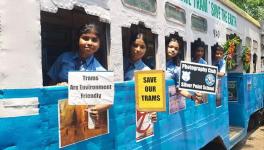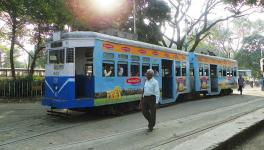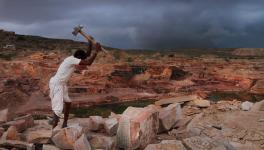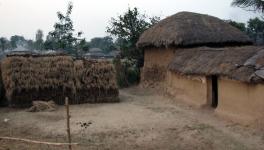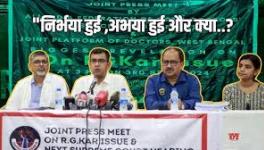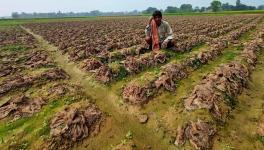Silicosis Crisis: West Bengal Govt's Inaction Sparks Protests and Demands for Justice
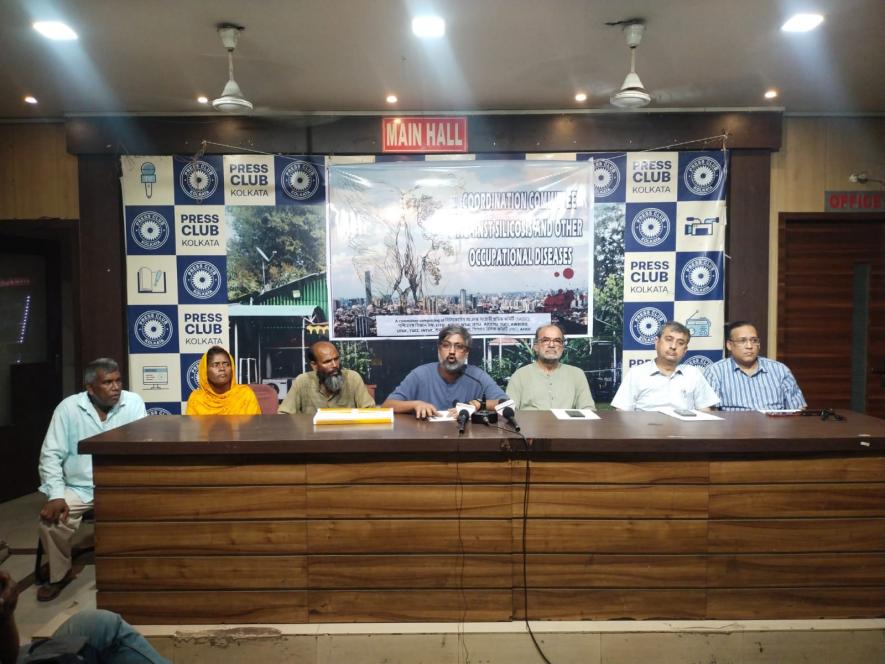
"A man knows he will die. While working for a living, he is slowly accepting death. Many of us do not know what silicosis is. It should be understood first that silicosis is a disease more dangerous than cancer, and awareness should be created about it. We all have to come together and create awareness about this," said Communist Party of India (Marxist) [CPI(M)] MP Vikas Ranjan Bhattacharya at a press conference organised by the Coordination Committee against Silicosis and Other Occupational Diseases (CCSOD) at the Kolkata Press Club on Friday.
Dr Fuad Halim informed People's Reporter: "Silicosis is going to become increasingly devastating in the days ahead. The system for identifying occupational diseases at the state level is extremely weak. In the majority of cases, a correct diagnosis cannot be established, leading to inadequate treatment. Those grappling with silicosis are essentially teetering on the edge of death. We demand that the government assume responsibility for silicosis patients."
The organisers claim that despite silicosis being a significant issue in the state at present, the government is not very concerned. A number of districts of West Bengal are home to thousands of silicosis patients; yet, they receive neither adequate medical care nor any form of rehabilitation. The prevalence of occupational disorders among working people is a major concern, particularly in a nation like ours, where over 90% of the workforce is compelled to work in the unorganised sector without receiving even the bare minimum in terms of labour rights.
The state government was forced to make a rehabilitation policy for silicosis patients in December 2021 as a result of persistent protests. This policy will make it possible for potential workers to receive an official diagnosis, compensation if their diagnosis is confirmed, a monthly pension, coverage for all medical costs, and other benefits.
The policy was declared on February 25, 2022. Approximately 10 months later, the application form for the affected workers was released, but up to this date, the workers remain unaware of the proper submission location for this form.
Protesting against the state government's inaction and inhumane attitude, the Silicosis Strugglers’ Committee has organised a day-long sit-in protest at Esplanade Y channel. The protest will take place on May 24, starting with a march from Moulali. The demands include bringing all illegal quarry crushers under labour laws and ensuring compliance with labour protection measures. Additionally, they demand a comprehensive survey and publication of a white paper on the number of potential sufferers of occupational diseases in all districts of the state. The protest is called by the Coordination Committee against Silicosis and Other Occupational Diseases (CCSOD), with participation from various organizations such as SASSC, West Bengal Vigyan Manch, CITU, NTUI, IFTU, AWBSRU, AICCTU, TUCI, AITUC, UTUC, TUCC, INTUC, Shramajivi Swasthya Udyog, People's Relief Committee, AHSD, and HRA.
In West Bengal, a long-standing movement against silicosis has emerged in North and South 24 Parganas, spearheaded by infected migrant workers. The residents of Minakhan, Deganga, Sandeshkhali, Basirhat, Canning, and Bhangar have been persistently demanding justice for over five years. Various mass organisations have supported them and approached the National Human Rights Commission. Lawyers have fought for the rights of these individuals in the High Court, and successive marches, demonstrations, and deputations have targeted the administrative offices in the two 24 Parganas districts. To escalate this fight, the 'Coordination Committee against Silicosis and Other Occupational Diseases' has been established, comprising approximately 10 central labour organisations, four health organisations, and other mass organisations.
In the five decades after independence, there was no discussion about this issue. However, over the last 25 years, the situation has changed significantly. A number of people have become aware of the problem, leading to the emergence of protest movements and legal battles. In many cases, voluntary organisations and NGOs have taken on a more active role compared to labour organizations. In recent years, the governments of Haryana and Rajasthan have introduced rehabilitation schemes for silicosis sufferers, and non-compliant industries are facing mounting pressure.
Unfortunately, due to a lack of government initiative, specific information regarding the number of individuals at risk in the workforce is unavailable. However, according to a 2011 report presented by the National Human Rights Commission to Parliament, over 10 million people are threatened by silicosis solely within the organised and construction industries. The actual number may be significantly higher if all the unorganised sectors are taken into account.
In West Bengal, a thriving industry has been operating across vast rocky areas in the western region for decades. Surprisingly, the majority of this industry operates outside the realm of the law, leaving questions of regulation, legislation, and worker protection unanswered. Countless migrant workers from all over the state have unknowingly contracted silicosis and lost their lives.
Lung disease, known as pneumoconiosis, is the most common and dangerous type of occupational disease. It occurs when workers inhale various types of dust present in the workplace, which accumulates in the lungs and leads to early-onset lung paralysis, often resulting in death. Different names are given to this disease based on the type of dust involved. For example, silicosis refers to the inhalation of silica dust (from stones, sand, cement, road dust, and brick dust), anthracosis is caused by coal or carbon dust, and Byssinosis is associated with jute, cotton, or wool fibres. Other examples include asbestosis, caused by asbestos exposure, and so on.
Get the latest reports & analysis with people's perspective on Protests, movements & deep analytical videos, discussions of the current affairs in your Telegram app. Subscribe to NewsClick's Telegram channel & get Real-Time updates on stories, as they get published on our website.












